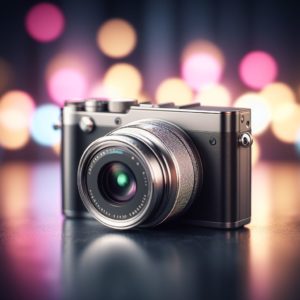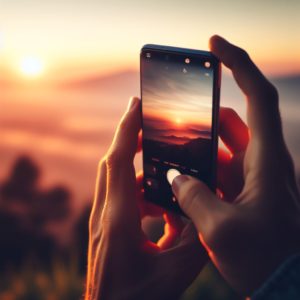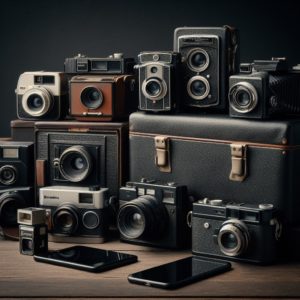In the modern age of technology, we are fortunate to have a wide array of options for capturing life’s moments. Two primary contenders in the photography arena are the digital camera and the camera phone. Both have their own merits and demerits and choosing between them can be a nuanced decision. In this article, we’ll explore the key aspects of digital cameras and camera phones, shedding light on their unique features, and helping you make an informed choice without resorting to exaggeration.
The Pioneers: Digital Cameras
Digital cameras have been a staple for photography enthusiasts and professionals for many years. These dedicated devices have evolved significantly from their film-based predecessors and offer a multitude of advantages.
Want to know more about our Tech Solutions? Visit us at www.nesesho.com
Image Quality
One of the most significant advantages of digital cameras is their superior image quality. They typically feature larger sensors, which can capture more detail and produce clearer, sharper images. Digital cameras also allow for interchangeable lenses, giving photographers the ability to adapt to various shooting conditions and styles. This flexibility leads to stunning image quality that often surpasses the capabilities of camera phones.
Manual Control
For those who relish creative control over their photography, digital cameras are a godsend. They provide a wide range of manual settings, including adjustable aperture, shutter speed, and ISO settings. These features empower photographers to experiment with various effects, such as bokeh (aesthetic blurring) and long-exposure shots. The tactile experience of handling a digital camera also enhances the sense of connection with your subject.
Specialized Functions
Digital cameras often come equipped with specialized functions like advanced metering modes, HDR (High Dynamic Range) capabilities, and the option to shoot in RAW format. These features allow photographers to tackle challenging lighting conditions and make post-processing easier and more precise. Such tools are indispensable for professional photographers and enthusiasts who seek perfection in their work.
The Challengers: Camera Phones
In recent years, camera phones have made substantial strides, challenging the supremacy of digital cameras. They offer a more convenient and accessible way to capture life’s moments.
Convenience
Camera phones are the epitome of convenience. They are always in your pocket, ready to capture a moment at a moment’s notice. This accessibility means you can snap photos on the fly, eliminating the need to carry a separate device. Additionally, the integration of social media apps on camera phones makes sharing photos instantaneous, adding an element of social connection to your photography.
Portability
Camera phones are incredibly compact and lightweight, making them ideal for travel and everyday use. Their simplicity and lack of additional gear, such as lenses and tripods, make them an attractive option for capturing life’s spontaneous moments. Their user-friendly interfaces allow for quick adjustments and shooting in auto mode, catering to a broad audience.
Advancements in Technology
Camera phone technology has witnessed rapid advancements. Many camera phones are now equipped with multiple lenses, including ultra-wide, telephoto, and macro options. These lenses add versatility to your mobile photography, allowing you to adapt to various shooting scenarios. Additionally, AI (Artificial Intelligence) algorithms integrated into camera phones enhance image processing, automatically adjusting settings for optimal results.
The Decision
The choice between a digital camera and a camera phone ultimately depends on your individual needs and preferences.
If you prioritize image quality, and creative control, and have a passion for photography, a digital camera is the right choice. It offers the tools and capabilities needed to create professional-grade photographs.
On the other hand, if convenience, portability, and accessibility are paramount, a camera phone is the way to go. It will ensure that you never miss capturing life’s spontaneous and cherished moments.
The good news is that in the digital age, you don’t have to limit yourself to just one option. Many photographers choose to have both a digital camera for their serious photographic pursuits and a camera phone for everyday convenience. This approach allows you to enjoy the best of both worlds.
Conclusion
The debate between digital cameras and camera phones is not one of superiority but of personal preference and intended use. Each has its distinct advantages, and the right choice depends on your photography goals and lifestyle. Whichever you choose, both digital cameras and camera phones have their place in the modern photographer’s toolkit, ensuring that you can capture the world around you in the best way that suits your needs.
Want to know more about our Tech Solutions? Visit us at www.nesesho.com



